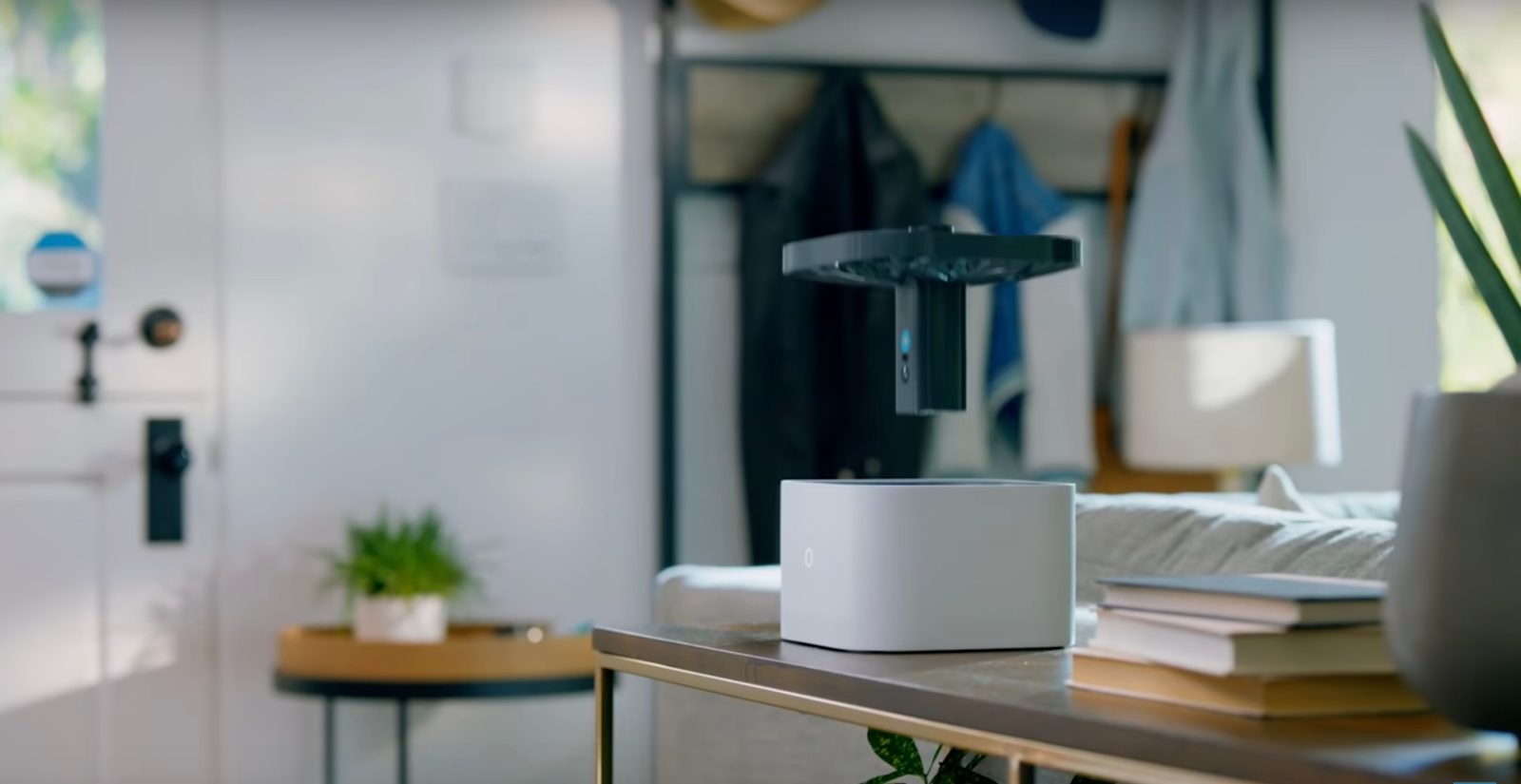
It’s been nearly a year since the Ring’s Always Home Cam was unveiled at Amazon’s hardware event, and the reasons to love or hate the household security drone have been unrestrainedly shouted ever since. Now consumers are finally getting the chance to adopt the aerial watchdog, and either adore or detest it in their very own abode, sweet abode.
Ring made its Always Home Cam available for purchase by invitation from its Amazon owner’s product page this week. For the price of $250, customers will receive a drone-by-any-other-name “first-of-its-kind flying indoor security camera for your home” that shoots 1440 x 1440 HD video as it patrols their house using preset flight paths. As most readers know by now, the T-shaped craft’s propellers are encased in plastic as a safeguard against any drone-meets-face collisions – the potential of those having been quasi-eliminated by embedded obstacle avoidance technology anyway. Safety and security both assured – what could be simpler?
Fixed cameras and motion detectors are capable of sending out similar alerts without buzzing around your crib like a stoned bat filming every possibly intimate detail they encounter, say detractors. But that may just be a matter of personal opinion.
Ring assures its Always Home Cam can be set to halt patrols while the house is occupied. The slight but audible whine of its approaching rotors, meanwhile, should suffice to warn people to halt any overly private activity that should never be filmed (though that, too, appears to be a matter of personal opinion). Generally speaking, however, the drone will mostly be operating in three different situations when homesteads are empty.
First, flying routine programmed missions and sending alerts via smartphone if anything seems out of order. Second, in response to certain prompts like doors or windows opening unexpectedly (at which point customers will get a chance to see what’s going on, and inspect things further if need be). Third, prompted by owners overcome with worry they left home after doing something dumb like leaving a door or window open, or a pot boiling away on the stove.
Far from controversial or potentially nefarious, Ring promises, it aerial domestic sleuths are intended to give homeowners peace of mind while they’re away, send out alerts when anything seems amiss, and otherwise stay tucked out of the way in their docks, cameras covered.
So what’s to hate about that?
A violation of privacy and data theft waiting to happen?
That privacy thing, detractors insist – and not only because a camera will be hovering around the place when people are home as well as away. Ever since the product’s unveiling last September, critics have said Always Home Cam will be a magnet for hackers seeking to take over the system and case houses for robbery, or download video in the hopes of using anything that might seem compromising for blackmail. And that’s not even mentioning the potential for Always Home Cam to bug and start communicating data on its own. (Anyone remember Alexa forwarding cringe-making emails to people for which they were never intended?)
Privacy purists, meanwhile, hate the very idea of entrusting yet another company to remain responsible with personal data, or do the right thing when security has been compromised. Ring has suffered a couple cases of system breaches by outsiders in the past, and those were before the current salad days for hackers taking over entire IT business systems for ransom.
And if antagonists needed another reason to dislike and mistrust Always Home Cam, the invitation-only purchases – which is probably a good-enough reason to gnash one’s teeth on its own – will involve beta-test use of the craft. Meaning, clients will be plunking down a quarter grand for a product that may have its bug-prone moments.
But like everything else in the news in the US these days, the immediate, sharply contrasting, and entrenched views on Ring’s Always Home Alone are probably signs themselves that individual consumers are best advised to get educated and make purchasing decisions on their own. So much comes down to matters of opinion, after all.
FTC: We use income earning auto affiliate links. More.




Comments